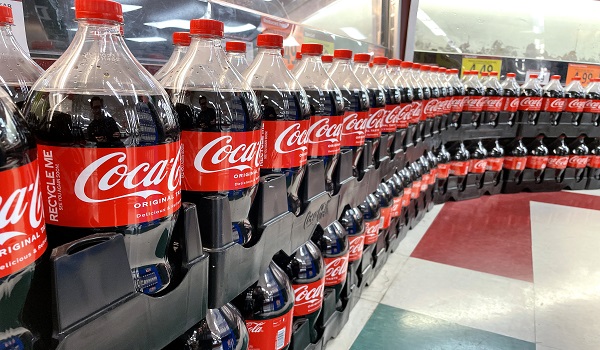Coca-Cola India is seeking to offload a significant minority stake in its wholly owned subsidiary, Hindustan Coca-Cola Beverages (HCCB), for a potential investment of $800 million to $1 billion. This initiative aligns with a broader plan to emulate PepsiCo’s successful model of outsourcing bottling operations to streamline its asset portfolio.
Coca-Cola has approached prominent Indian business families, including the Bhartias of Jubilant Group and the Burmans of Dabur, among others, to discuss the stake sale. The company is looking to attract long-term strategic partners who can bring in significant capital and expertise. The Parekh family of Pidilite Industries and the promoters of Asian Paints have also been contacted for this high-value investment opportunity.
Executives familiar with the matter revealed that these families are considering routing the proposed investments through their respective family offices or group companies. For instance, Jubilant Foodworks, which holds exclusive franchises for Domino’s Pizza, Dunkin’ Donuts, and Popeyes in India, is exploring the potential of entering the beverage segment, building on its extensive experience in consumer services.
The investment discussions are part of a broader value-unlocking exercise aimed at preparing HCCB for a potential initial public offering (IPO). While the valuation of HCCB and the exact stake to be sold are still under negotiation, Coca-Cola’s aim is to replicate the asset-light model successfully implemented by PepsiCo, which has outsourced its bottling operations to Varun Beverages Ltd. This move has seen significant growth for PepsiCo’s bottling partner, whose stock has more than tripled since its listing on the Bombay Stock Exchange in 2016.
Coca-Cola’s plan to sell a minority stake in HCCB is part of a strategy to leverage the high growth potential of the Indian beverage market. The packaged beverage sector in India remains one of the least penetrated segments within the fast-moving consumer goods (FMCG) industry, offering substantial growth opportunities. Coca-Cola aims to capitalize on this by expanding its product range, including traditional drinks like nimbu pani and jaljeera, as well as iced tea and coffee.
HCCB reported a 40% increase in revenue to ₹12,840 crore for FY23, with net profits more than doubling to ₹809.32 crore. This robust financial performance underscores the strong demand for Coca-Cola products in India following disruptions caused by the COVID-19 pandemic. Coca-Cola India’s consolidated profit surged by 57% to ₹722 crore, with revenue from operations rising by 45% to ₹4,521 crore, reflecting the company’s solid market position and growth trajectory.
As Coca-Cola explores this investment opportunity, it has engaged in discussions with potential investors and private equity groups to form a consortium or make independent investments. The final structure of the deal, including whether these families will invest jointly or separately, remains to be seen. Industry sources suggest that Coca-Cola’s move to find strategic partners is aimed at ensuring sustainable growth and leveraging the massive potential of the Indian market for packaged beverages.
Coca-Cola’s global strategy involves partnerships with a mix of listed and privately held bottling companies, with its top five bottling partners accounting for 42% of the company’s total unit case volumes in 2022. This move in India is part of a larger effort to align with global practices and optimize operations.
As of now, spokespeople for Coca-Cola and the approached business families have declined to comment on the ongoing negotiations. However, the proposed stake sale represents a significant opportunity for Coca-Cola to enhance its market presence and operational efficiency in India, positioning it for sustained growth in one of the world’s most dynamic consumer markets.


